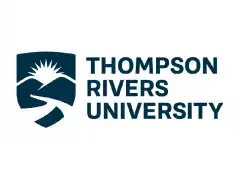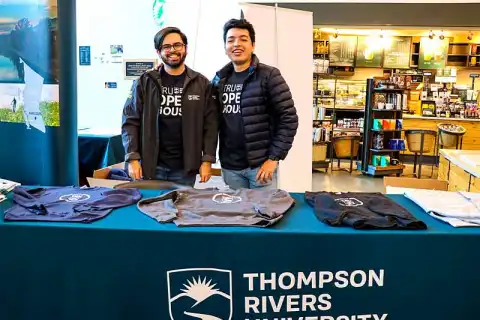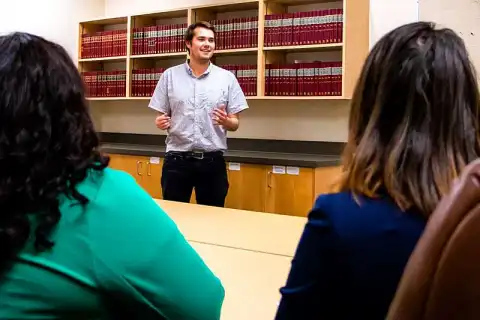Bachelor of Science - Environmental Chemistry
- 4 years
- Duration
- 101,880 CAD
- Price
- Rolling admission
- Start
- Rolling admission
- Deadline
- Bachelor
- Degree
- Campus
- Format
- Kamloops / Canada
- Location
- Thompson River University
- School
Program description
Investigate the chemical processes that occur in the environment as a result of human activities, such as metropolitan air and water pollution, ozone depletion, the production of toxic substances from chemical waste, the prevalence of pesticides, and climate change. Learn the basics of assessing human activity in the environment.
Computers and telecoms, fine and heavy chemical manufacturing, food and beverage production, mining and metallurgy, petroleum, pharmaceuticals/drugs, plastics, and pulp and paper are all places where chemistry grads can find work. Government agencies also use them in education, forensic investigation, mineral analysis, public health, resource industry research and development assistance, technical and analytical information creation, waste management, and water and air quality management.
Program structure
- General Biology
- Human Biology
- Introduction to Life Sciences
- Biology of the Environment
- Biology of Humans
- Principles of Biology 1
- Principles of Biology 2
- Human Biology: Anatomy and Physiology 1
- Human Biology: Anatomy and Physiology 2
- Cell Biology
- Introductory Microbiology
- Introduction to Ecology
- The Evolution and Ecology of Land Plants
- Evolution of Animal Body Plans
- Introduction to Genetics
- Biometrics
- Bioinformatics
- Population Biology
- Introduction to Animal Behaviour
- Field Ornithology
- Introduction to Biochemistry
- Immunology
- Microbial Ecology
- Natural History
- Biochemistry
- Field Botany
- Ichthyology
- Developmental Biology
- Molecular Genetics
- From DNA to Ecosystems: Reading and Writing Great Biology
- Plants and People
- Plant Physiology
- Cell Physiology
- Human Physiology 1
- Human Physiology 2
- Fermentation Processes in Food and Pharmaceutical Production
- Introduction to Research
- Limnology
- Field Methods in Terrestrial Ecology
- Field Methods in Marine Ecology
- Advanced Microbiology Lab
- Evolution of Flowers
- Molecular Evolution
- Evolution
- Biochemical Techniques 1
- Principles of Conservation Biology
- Microbial Physiology
- Biochemical Techniques 2
- Plant Ecology
- Terrestrial Vertebrate Zoology
- Regulation of Gene Expression
- Directed Studies in Biology
- Advanced Seminar - Selected Topics in Biology
- Microscopy Techniques
- Honours Seminar in Biological Sciences
- Honours Thesis in Biological Sciences
Price
- Tuition — 101,880 CAD per education
- 40 courses (2,547 CAD per course) = 120 credits (849 CAD per credit)
- Application Fees — 100 CAD (one time, non-refundable)
Requirements for applicants
- English Studies 12/English First Peoples 12 with a minimum of 73% (or equivalent)
Bachelor of Science majors have specific first year course requirements. It is strongly recommended that students become familiar with the prerequisite requirements for these courses before applying for admission. In general, the minimum prerequisite requirements for courses in the first year courses in the BSc programs are as follows:
- Life Sciences 11 or Anatomy & Physiology 12 with C+ (or equivalent) or better
- Chemistry 11 (or equivalent)
- Pre-calculus 12 with a minimum C+ (or equivalent) within the past 2 years
- Physics 11 (or equivalent)
About the university

The success of our students is our top goal here at Thompson Rivers University. Our varied community, personalized student services, opportunities for real-world application, and adaptable curriculum give each student the tools they need to succeed.
TRU has approximately 140 on-campus programs and over 60 Open Learning programs, ranging from traditional academics to trades, certifications to graduate degrees. Co-op work terms, undergraduate research, field schools and practicums, service learning, and other programs give our students the chance to put their knowledge into practice under the supervision of approachable faculty mentors. Our open, adaptable classroom encourages exploration, production, and discovery. Our students do, too.
Our Mission
TRU is a comprehensive, learner-centered, sustainable university that provides high-quality, adaptable education, training, research, and scholarship to its local, national, and worldwide student body and the communities it serves.
Our Campuses
Located in the southern interior of British Columbia, TRU's Kamloops and Williams Lake campuses lie in the traditional territory of the Secwepemc peoples.





